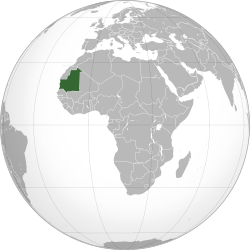Uncertainty Lingers Over Repentant Terrorists
By Magharebia
By Jemal Oumar
Scores of terrorists from Mali, Niger, Mauritania and other African states intend to lay down arms and enter into reconciliation with their governments, a former Armed Islamic Group (GIA) member said recently.
Two battalions operating in the Sahel under al-Qaeda’s leadership will turn in their weapons provided that they receive guarantees that there will be no court proceedings against them, Abdel Kader Rium told Algeria’s Echourouk daily on September 11th.
They include the “Battalion of the Masked”, led by Mokhtar Belmokhtar (alias Khaled Abou El Abbas or Laaouar), and “Tariq Ibn Ziyad Battalion”, headed by Abdel Hamid Abou Zeid.

Rium said he was “fully prepared to open a channel of communication and consultation” with repentant terrorists “with the knowledge of the authorities concerned”.
Mauritanian experts were not surprised at Rium’s statements. The ex-terrorist was “the aide of Ben Laaouar, who is one of the most dangerous men of the desert”, according to terrorism analyst Rabie Ould Adum.
“Former emir Abdel Kader Rium benefited from the pardon under the Charter for Peace and National Reconciliation, which was adopted by the Algerian government,” Ould Adum added. “Abdel Kader has tasted stability and security, as he has before tasted war in the desert and the ghost of security chases and threat of death. Therefore, it is only natural that he would restore rational thinking and come to terms with himself.”
The analyst suggested that Rium’s statements could have been “made at the request of some AQIM militants themselves”.
“Scores of them started to become fed up with the armed confrontations and living in the desert, especially as many militants have joined the organisation for certain reasons that may not be necessarily ideological,” he added. “Some of them have financial interests, while some were deceived, and some others were resentful of the political regime.”
Analyst Moukhtar al-Salem concurred that an increasing number of terrorists “want to renounce violence in return for guarantees that they won’t be tried and promises that they will be re-integrated into active life”.
Fear of legal prosecution, however, is not their only deterrent. Many repentant militants fear “reprisals by their fellow Salafists who would consider them as traitors and apostates”, he added.
“When the terrorist thinks about repentance, he will find the following questions before him: How can I reach safety? What is the convincing trick that will enable me to get out of the desert without being accused of running away? How would I escape death under the pretext of religious apostasy? What is the future that is awaiting me in my country if I return?” analyst Mohamed Naji explained.
Lingering doubts and uncertainty cause many to remain in the desert and even commit suicide attacks “to get rid of the nightmare of hesitation”, he added.
“The anti-terrorism law in Mauritania doesn’t include any mechanisms for how to deal with former terrorists,” expert Bechir Ould Babana told Magharebia. “Prosecuting or releasing the repentant terrorists is an issue of discretion for the Mauritanian judiciary or authorities.”
“However, it is more likely that the Mauritanian authorities would pardon any repentant terrorist as was the case in many other cases,” he added. “We have the case of [Ahmed] Ould Weiss who was released after he confessed in Mauritanian media and declared his repentance. In addition, President Mohamed Ould Abdel Aziz said more than once before that the Mauritanian young people in al-Qaeda were deceived and that the door of repentance is open for all those who want to lay down arms and come back to their senses.”
